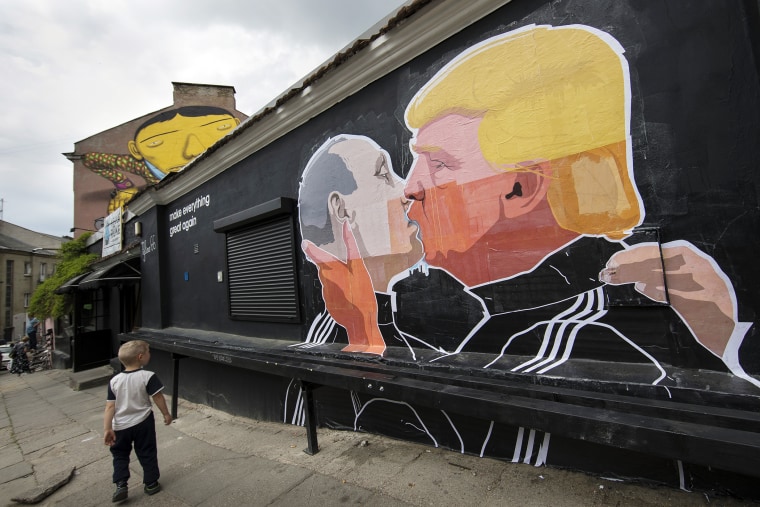Given months of speculation about Donald Trump's ties to, and affection for, Russian President Vladimir Putin, the Republican presidential hopeful took another risk in last night's debate, defending the Russian autocrat against hacking allegations."I notice, anytime anything wrong happens, they like to say the Russians are -- she doesn't know if it's the Russians doing the hacking," Trump said, pointing at Hillary Clinton. "Maybe there is no hacking."No, really. The GOP nominee actually said, "Maybe there is no hacking."The comments came two weeks after Trump's other debate appearance, in which he defended Russia. "I don't think anybody knows it was Russia that broke into the DNC," he said. "She's saying Russia, Russia, Russia, but I don't – maybe it was. I mean, it could be Russia, but it could also be China. It could also be lots of other people. It also could be somebody sitting on their bed that weighs 400 pounds, OK?"Trump's efforts to defend his Russian allies continue to be bizarre, but putting the politics aside for a moment, the evidence is increasingly pointing in a rather obvious direction. CNBC reported on Friday:
The U.S. has formally blamed Russia for recent political hacking attacks, saying they were "intended to interfere with the U.S. election process."U.S. intelligence officials said they are "confident" that the Russian government directed those attacks on American political organizations, the Department of Homeland Security and the Office of the Director of National Intelligence on Election Security said Friday in a joint statement.
"The U.S. Intelligence Community is confident that the Russian Government directed the recent compromises of e-mails from U.S. persons and institutions, including from U.S. political organizations," the agencies' statement said. In added, "These thefts and disclosures are intended to interfere with the U.S. election process."As the Washington Post noted, congressional Republicans welcomed the findings from the DHS/DNI investigation. "Today was just the first step," said Sen. Ben Sasse (R-Neb.), a member of the Homeland Security Committee. "Russia must face serious consequences. Moscow orchestrated these hacks because Putin believes Soviet-style aggression is worth it. The United States must upend Putin's calculus with a strong diplomatic, political, cyber and economic response."But remember, as far as the Republicans' presidential candidate is concerned, not only should Russia not be blamed for the hacking, but "maybe there is no hacking."Keep in mind, in a normal election year, this might very well be one of the biggest political stories on the planet. The United States has formally accused a foreign foe of deliberate cyber-attacks for the express purpose of influencing the outcome of an American election.All the while, the possible beneficiary of the crimes is defending the foreign foe and suggesting that the cyber-attacks may be a figment of our collective imaginations.And somehow, this isn't an election scandal.For a more detailed look, Julia Ioffe, who knows vastly more than I do about Russian policy, had a good piece in Politico the other day, explaining "the seven reasons the new Russian hack announcement is a big deal."Update: NBC News reported today that Trump received an intelligence briefing, which included information on the Russian hack. "To profess not to know at this point is willful misrepresentation," a senior U.S. intelligence official said. "The intelligence community has walked a very thin line in not taking sides, but both candidates have all the information they need to be crystal clear."
